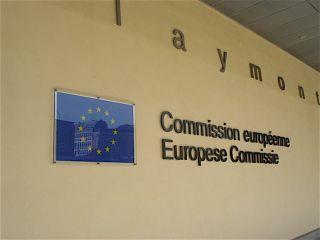Ice has settled on EU-Russia relations as a Commission official said. But it is clear that not all EU memberstates believe this to be a problem…

Putin knows that the EU of 28 countries is and will stay fundamentally divided on how to deal with Russia.
by
N. Peter Kramer
While EU foreign affairs chief Ashton told journalists that the EU and the US are working on a ‘Ukrainian Plan’ to help finance the country’s debt and EU Commissioner Fuele, a former Czech diplomat, called for promising Ukraine EU membership, Germany’s head of relations with Russia and the eastern neigbourhood, Gernot Erler, said that the EU was wrong not to have analysed possible conflicts with Russia before offering a ‘Eastern Partnership’ to countries like Ukraine! He said the EU has to reconsider its Eastern Partnership policy. ‘We have to ensure there is no tension between the Eastern Partnership and the Russian Customs Union’ he noted, ‘we need a solution as quickly as possible because this is not only about Ukraine. Moldova and Georgia have finished negotiations’
The EU-Russia summit last week took only three hours instead of the usual two days. During the pressconference afterwards the double act of EU Presidents Barroso and Van Rompuy was not very convincing and Russian President Putin gave the impression that he came to Brussels to be polite and would like to go home as soon as possible because there was important work to do. He didn’t look impressed by what the EU Presidents told him about Ukraine. Putin knows that the EU of 28 countries is, and will stay, fundamentally divided on how to deal with Russia. Where for instance Greece and Cyprus see Russia as a cultural and religious cousin and Italy as an indispensable energy partner, the Baltic States see a former oppressor that disturbed their cooperation with Nazi-Germany. The King and Prime-Minister of The Netherlands are Putin’s guests during the Olympic Wintergames in Sochi. In the new ‘grand coalition’ in Berlin, although Chancellor Merkel, raised in communist Eastern Germany, has no illusions about Putin, her Christian-Democrats are receptive to business lobbies that want even stronger economic and energy ties with Russia, while the Social Democratic partner has good memories of their 1970’s Ostpolitik that rebuilt German-Soviet ties. Ice has settled on the EU-Russia relations as a Commission official said. But it is clear that not all EU memberstates believe this to be a problem…




 By: N. Peter Kramer
By: N. Peter Kramer

